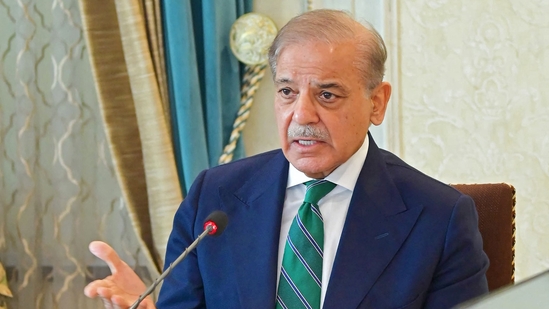In a sudden increase in tensions between Pakistan and India, Islamabad shut down its airspace for all Indian airlines and froze bilateral trade, including products transiting through Pakistan to third nations. The action is taken after a terrorist attack on Jammu and Kashmir, which has increased increasing tensions between the two nuclear neighbors. The shutting of airspace and trade suspension marks a drastic change in relations, as both nations resort to punitive action against each other in retaliation for the continuing disagreement.
Pakistan’s Response: Closure of Airspace and Suspension of Trade
Pakistan closing its airspace to Indian carriers is the most recent among a string of retaliatory actions. It will significantly hamper flight activity between the two nations, both commercial flights as well as freighters. Apart from air travel, Pakistan has also suspended all trade with India, closing down trade flows originating from Pakistan and moving to other points.
The move follows India’s decision to take decisive actions after a terrorist attack in Pahalgam, Jammu and Kashmir, that claimed the lives of 26 individuals, including 25 Indian nationals and one Nepali citizen. In response to the tragedy, India had already taken steps to suspend the Indus Waters Treaty, an agreement that governs the sharing of the Indus River system between the two countries. Furthermore, India had withdrawn special visa deals for Pakistani citizens and shut down critical border checkpoints, which in turn intensified the tensions.
India’s Diplomatic Retaliation
India’s punitive measures did not end with the Indus Waters Treaty suspension. The Indian government also expelled Pakistani diplomats and downsized its diplomatic corps. Indian officials have called on citizens to come back from Pakistan, further clamping down on the two countries’ relations. Suspension of trade has also created a domino effect on regional supply chains as commodities going through Pakistan experience major disruptions.
The diplomatic consequences have resulted in a deterioration of communications, with each side taking harder and harder positions. India has said it will take additional measures if required, while Pakistan has promised to retaliate against any further aggressions from its neighbor.
International Concerns and Reactions
The international community has shown serious concern regarding the growing tensions between India and Pakistan. Nations across the globe, including the United States and European Union, have called upon both countries to show restraint and pursue dialogue to prevent a full-scale war. Although the UN has proposed mediation, both India and Pakistan have dismissed any third-party mediation at this point, indicating their unwillingness to resort to international mediation.
Global experts have cautioned that the existing standoff stands to escalate into uncontrollable violence, with each country’s armed forces on full alert. There is a possibility of a greater war hanging over the region due to the existing historical instability and nuclear status of both India and Pakistan.
Implications for Regional Stability
The disruption of India-Pakistan air and trade flows is likely to have serious economic implications. Sensitive industries on both sides, especially those participating in cross-border trade, are likely to lose heavily. The suspension of the Indus Waters Treaty also portends water insecurity, particularly for Pakistan, which depends on the Indus system for agriculture and drinking water.
Aside from the economic impact, the diplomatic fallout has the potential to reverse any chances for peace or normalization of relations. The crisis also further solidifies the confrontational position between the two nations, further complicating it for leaders to seek dialogue or a diplomatic solution.
The situation is fluid, with both India and Pakistan facing heavy domestic and international pressure to scale back the crisis. But since both countries are not ready to compromise, the road to peace now looks uncertain.
Conclusion: A Fragile Future
The shutdown of Pakistani airspace and suspension of trade represent a symbol of the widening gap between India and Pakistan. While the two countries keep retaliating with punitive action, the potential for further escalation is increasing. Global observers closely follow events with a hope of peace but the concern that tensions spill over into an all-encompassing war.
For the time being, the fate of India-Pakistan relations looks shaky, and the ongoing standoff highlights the precarious nature of peace between two of the world’s most populous and powerful nations. As tensions build further, the international community keeps its fingers crossed that both nations will be able to de-escalate tensions before things go out of control.






